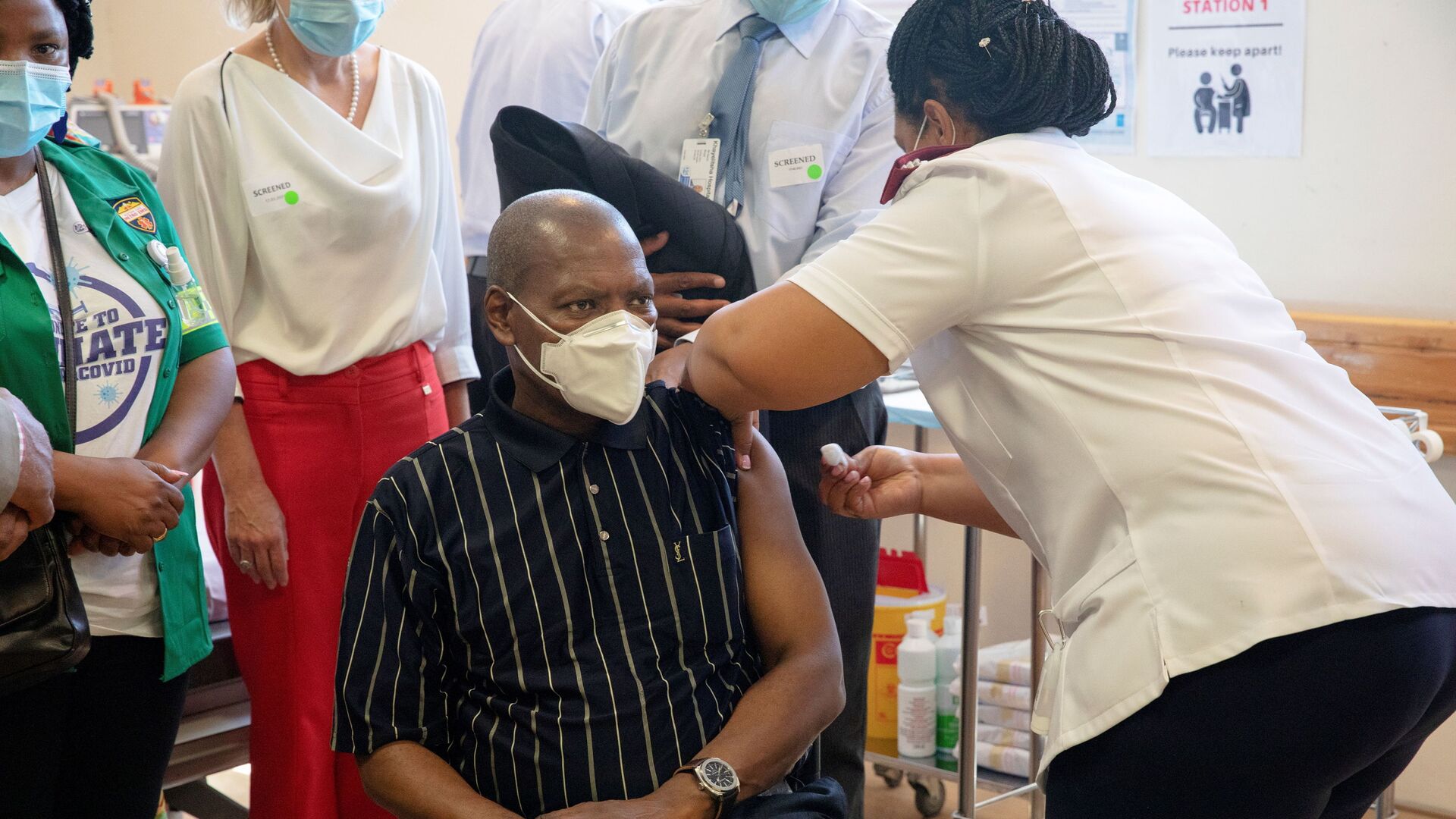Digital Vibes Report Reveals Corruption Behind South African Health Ministry’s COVID-19 Media Deal
23:43 GMT 30.09.2021 (Updated: 11:35 GMT 23.11.2022)

© REUTERS / POOL
Subscribe
After months of pressure, the administration of South African President Cyril Ramaphosa has released the results of a government probe into a contract for a COVID-19 media campaign with Digital Vibes, revealing extensive corruption behind the awarding of the deal.
When the COVID-19 pandemic broke out in early 2020, private firm Digital Vibes was already handling the South African National Department of Health’s (NDoH) National Health Insurance (NHI) communication campaign. However, the firm was soon tapped to head up government communications on COVID-19, as well.
According to a report released on Wednesday, there was extensive corruption underpinning the deal, and former Health Minister Zweli Mkhize got extensive kickbacks for granting the contract to his friends.
The report was given to Ramaphosa by the Special Investigating Unit (SIU) in July, but delayed publication until all third parties had been given a chance to object to its publication, his office said on Twitter.
According to the report, "during the period 29 January 2020 and February 2021, the National Department of Health (NDoH) had paid a total amount of approximately R150 million [$9.9 million] to Digital Vibes, which was deemed to be irregular expenditure; and that the NDoH had incurred fruitless and wasteful expenditure of at least approximately R37 million [$2.5 million] in respect of payments made to Digital Vibes (sic)."
The report notes that the owners of Digital Vibes, Tahera Mather and Naadhira Mitha, are “close associates” of Mkhize. Indeed, Mather was Mkhize's strategic communications adviser in 2019, according to News24.
“Mather and Mitha committed fraud in that they held out to the NDoH that Digital Vibes was tendering for the NHI media campaign contract, whereas in fact, Ms. Mather and Ms. Mitha used Digital Vibes as a front in order to hide ... that they were tendering for the contract and 'disguised' this due to the fact that they were close associates of the Minister, who was the executive authority of the NDoH, which was awarding the NHI media campaign contract," the report goes on to state.
The report revealed that Digital Vibes later paid for 6,720 rand ($446) in repairs to Mkhize’s home; transferred almost 300,000 rand ($20,000) into Mkhize’s son’s account; and bought a 160,000 rand ($10,625) Land Cruiser for his son’s farm in Pietermaritzburg.
It also notes that after taking the contract, Digital Vibes “failed to declare and pay company tax and failed to pay the required VAT to the South African Revenue Service."
Mkhize resigned as health minister in August after being given special leave in June by Rampahosa “to attend to allegations and investigations.” His replacement, Joe Phaahla, said Thursday he had no connection to the contract or the case.
“I invite you all to read the report. It is not a question of bad-mouthing (one’s) colleagues but, if you look at the report, you won’t find any indication that as deputy minister I was consulted on the appointment,” Phaahla told reporters. However, his office noted that six other officials from the health ministry had been suspended, pending conclusion of the probe and potential filing of charges.
However, one of those suspended is Anban Pillay, then-acting director-general of the health department, who was implicated for contravening sections of the Public Finance Management Act. The SIU recommended he be criminally prosecuted for financial misconduct.

